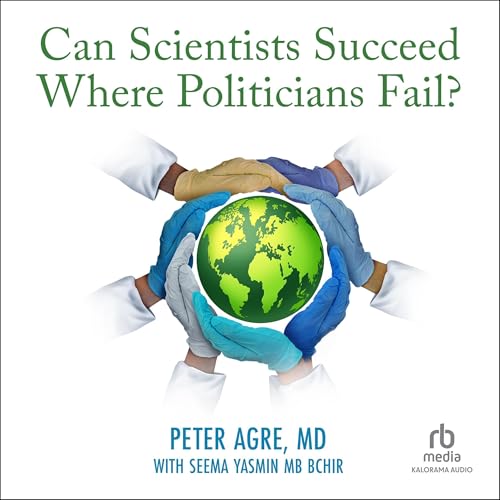
Can Scientists Succeed Where Politicians Fail?
Johns Hopkins Wavelengths
カートのアイテムが多すぎます
カートに追加できませんでした。
ウィッシュリストに追加できませんでした。
ほしい物リストの削除に失敗しました。
ポッドキャストのフォローに失敗しました
ポッドキャストのフォロー解除に失敗しました
Audibleプレミアムプラン30日間無料体験
¥1,700 で購入
-
ナレーター:
-
Jonathan Yen
概要
How can science prevail when policies fall short?
Sometimes in secret, sometimes as official ambassadors for their governments, scientists trade their white coats for blazers, stepping out of the lab and directly into sensitive, often life-threatening global crises. Think of the Paris Climate Agreement or the Iran Nuclear Deal, the Manhattan Project, and the Antarctic Treaty of 1959. Scientists have played a pivotal role in many of the greatest episodes in political history.
But what prompts their involvement in international affairs, and what are some of the impacts of their efforts? Can Scientists Succeed Where Politicians Fail? recounts Nobel laureate Dr. Peter Agre's career as a physician-scientist who went from studying malaria and other diseases to meeting with Fidel Castro in Cuba, discoursing with North Korean officials, and traveling into the Islamic Republic of Iran.
The book explores Agre's story alongside those of volcanologists in North Korea, epidemiologists in Latin America, and other scientists who have and are working alongside politicians, from African tribal chiefs to communist leaders, to tackle natural disasters and infectious threats in new ways.
©2025 Peter Agre (P)2025 Kalorama

